AESA PROGRAMMES
- Building R&D Infrastructure
- Developing Excellence in Leadership, Training and Science in Africa (DELTAS Africa)
- Human Heredity and Health in Africa (H3Africa)
- Africa’s Scientific Priorities (ASP)
- Innovation & Entrepreneurship
- Grand Challenges Africa
- Grand Challenges Innovation Network
- Rising Research Leaders/Post-Docs
- AESA RISE Postdoctoral Fellowship Programme
- African Postdoctoral Training Initiative (APTI)
- Climate Impact Research Capacity and Leadership Enhancement (CIRCLE)
- Climate Research for Development (CR4D)
- Future Leaders – African Independent Research (FLAIR)
- Critical Gaps In Science
- Clinical Trials Community (CTC)
- Community & Public Engagement
- Mobility Schemes: Africa-India Mobility Fund
- Mobility Schemes: Science and Language Mobility Scheme Africa
- Research Management Programme in Africa (ReMPro Africa)
- Science Communication/Africa Science Desk (ASD)
- Financial Governance: Global Grant Community (GGC)
- AAS Open Research
- CARI Programmes
- Evidence Leaders Africa (ELA)
Grand Challenges Africa
The Grand Challenges family of initiatives seeks to engage innovators from around the world to solve science, technology and innovation, health and developmental challenges. Grand Challenges initiatives are united by their focus on fostering innovation, directing research to where it will have the most impact, and serving those most in need.
The challenge also encourages partnerships that bring together investigators from diverse organizations, including for-profit institutions, non-governmental organizations, academic and health research institutions, foundations, and civil society groups. Today, a variety of funding partners use “Grand Challenges” to accelerate research, creating an expanding network of funding and research partnerships spanning diverse topics. The Grand Challenges family includes, the Bill and Melinda Gates Foundation, Grand Challenges Canada, United States Agency for International Development, Grand Challenges Brazil, Grand Challenges India, Grand Challenges South Africa, Grand Challenges Ethiopia, and Grand Challenges Africa.
The Grand Challenges Africa (GC Africa) programme seeks to promote Africa-led scientific innovations to help countries better achieve the Sustainable Development Goals by awarding seed and full grants to the continent’s most impressive solutions. It supports big, bold impactful innovative ideas that have a potential for impact, scale and sustainability. GC Africa builds on the previous successes of local Grand Challenges programmes and a strong base of African Grand Challenges grantees. The AAS through its agenda setting, funding and programme implementation platform, the Alliance for Accelerating Science in Africa (AESA) implements GC Africa in partnership with the African Union Development Agency (AUDA-NEPAD) and the Bill & Melinda Gates Foundation.
GC Africa has been set up to:
- Support existing Grand Challenges grantees in Africa who have been funded by the Bill & Melinda Gates Foundation Grand Challenges, Grand Challenges Canada and Grand Challenges for Development USAID.
- Raise awareness of the Grand Challenges funding model in Africa.
- Define and set the agenda and priorities for future Grand Challenges in health and other development challenges in Africa.
- Develop, launch and manage Africa-specific Grand Challenges grants independently and/or with partners targeted at helping African countries to meet the Sustainable Development Goals (SDGs).
- Support the innovation pipeline from discovery to scaling and commercialisation
- Strategic and well-articulated grand challenges will serve both to focus research efforts and to engage Africa’s best innovators.
- Projects will be selected based on public, transparent calls for proposals seeking the best ideas.
- Funders, investigators, and other stakeholders will actively collaborate and integrate advances to ensure these advances serve those most in need.
- Projects will be selected not only for scientific excellence, but also for their likelihood to achieve the desired impact. They must be milestone-driven and actively managed to that end.
- Projects and investigators will make access commitments to ensure the fruits of their research are available to those most in need.
Oversight for GC Africa is currently provided by the AESA Partners Group (PG) and AESA’s Independent Strategic and Scientific Advisory Board (ISSAB).
ISSAB provides advice on AESA’s scientific direction, strategy, operations to the AESA Director, AAS Executive Director and funding partners on an adhoc basis. ISSAB will also evaluate the GC Africa’s activities, specifically its contribution to promoting innovation in Africa.
Meet the Team
The scheme seeks to promote Africa-led scientific innovations to help countries better achieve the Sustainable Development Goals by awarding seed and full grants to the continent’s most impressive solutions.
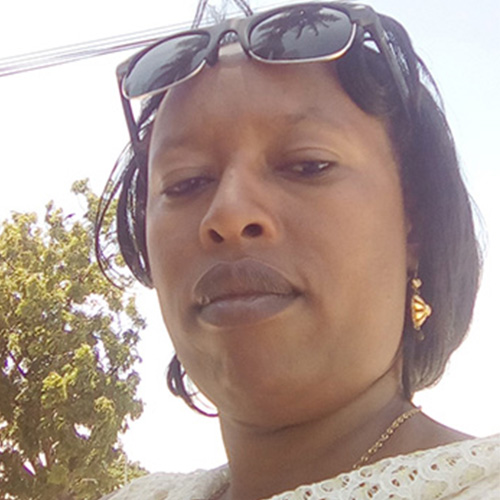 Dahabo Adi Galgallo
Dahabo Adi Galgallo Kenya
Maternal Newborn Child Health (MNCH)
Project- Integrated maternal mobile health care service for pastoralist mothers tracked via solar-powered GPS bracelets
Dahabo Adi Galgallo is a Kenyan innovator based who is currently undertaking a residency in field epidemiology from the Kenya Field Epidemiology and Laboratory Training Programme (FELTP), sponsored by the US’ Centers for Disease Control and Kenya’s Ministry of Health. The holder of a diploma in medical laboratory sciences from the Kenya Medical Training College, Nakuru, has worked in the public health sector since 2009, serving in different capacities including sub-county disease surveillance coordinator and sub-county laboratory coordinator. She also worked for the Kenya Red cross for a year. She is a recipient of several awards and has conducted public health projects in antenatal care, cholera, typhoid and tuberculosis prevention as part of her FELTP residency. She is self-motivated and a leader with a passion for maternal health care.
Project- Integrated maternal mobile health care service for pastoralist mothers tracked via solar-powered GPS bracelets
Galgallo is developing a waterproof, coin-sized, solar-powered GPS-tracking device that will be fitted into cultural jewellery of expectant mothers in pastoralist and nomadic communities so health workers can easily locate and provide them with pre and antenatal care where they are. Integrated maternal mobile health delivered to pastoralist women will decrease maternal mortality, infant mortality and improve vaccination coverage, which will improve infant survival in this population because women can easily be traced and care given. This project will identify expectant women in Marsabit and immunise them against tetanus, which is the first step in saving baby’s life, conduct laboratory profiling to detect any diseases for early intervention and provide continuous antenatal care from the duration of the pregnancy to birth and then immunisation of new born up to 12-month in tandem with continous health education. Marsabit is one of the largest counties in Kenya with residents who are mainly pastoralist and nomadic, even crossing to Ethiopia and Somalia.
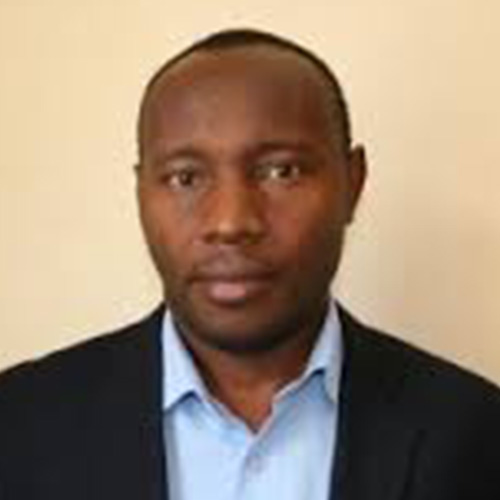 Jesse Gitaka
Jesse Gitaka Kenya
Maternal Newborn Child Health (MNCH)
Project- Rapid and multiplex diagnosis of maternal bacterial infections
Jesse Gitaka is an experienced physician scientist, investigator and lecturer in the School of Medicine at Mount Kenya University. He holds Bachelors of medicine and surgery from the University of Nairobi and a master’s in tropical medicine and Doctorate of Philosophy in medical science from the Nagasaki University in Japan. Gitaka has worked as a rural district hospital medical officer, a field based clinical researcher at the Kenya Medical Research Institute in Kilifi, for a children malaria vaccine trial, and as a consultant in Ebola setting health system strengthening in Liberia. He is a principal investigator on several studies spanning from the bench to field questions in the areas of maternal and newborn health and infectious diseases. Gitaka is also keenly interested in the role of innovative technology in health at scale. He is a recipient of multiple grants including the National Research Fund, Grand Challenges and County Innovations Challenge Fund and has published in peer reviewed journals, with active collaborations locally and internationally.
Project- Rapid and multiplex diagnosis of maternal bacterial infections
Gitaka will lead the development and deployment of a point of care diagnostic for bacterial infections that have been implicated in poor pregnancy outcomes such as premature deliveries, still births, maternal and newborn sepsis and deaths. Their project will enable quick detection of these bacteria allowing for prompt treatment. They will test whether treating for these bacterial infections, which are usually not diagnosed, improves pregnancy outcomes in field situation. This strategy has the potential to inform pregnancy monitoring and follow up practice and policy.
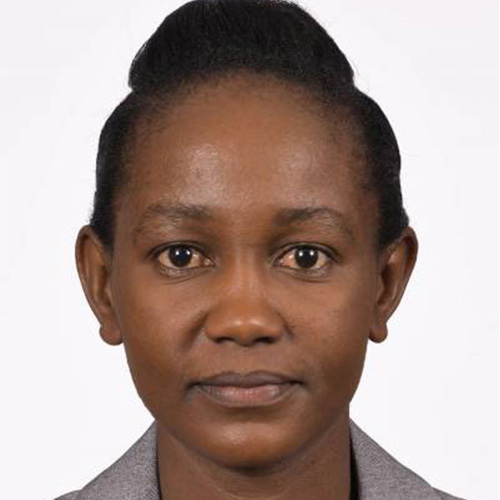 Christine Musyimi
Christine Musyimi Kenya
Maternal Newborn Child Health (MNCH)
Project- Engaging Traditional Birth Attendants to reduce maternal depression in rural Kenya (Engage-TBA)
Christine Musyimi is a mental health researcher and the head of research ethics and scientific publications office at Africa Mental Health Foundation (AMHF). She obtained her Bachelor’s degree in Nursing and master’s in medical statistics from the University of Nairobi in Kenya and awaits her PhD defence on global mental health in November, 2017 at Vrije Universiteit, Amsterdam. She has been a recipient of two Grand Challenges Canada grants and a pioneer in Kenya to introduce evidence-based mental health practice among traditional and faith healers. Christine has written extensively on the challenges and opportunities available to initiate collaborative processes between formal and informal health sectors (traditional and faith healers) and has presented these findings in both local and international conferences and published in newsletters, books and several impact-rated journals. Her current work involves engagement of Traditional Birth Attendants to deliver conventional mental health care to mothers during the perinatal period.
Project- Engaging Traditional Birth Attendants to reduce maternal depression in rural Kenya (Engage-TBA)
Traditional Birth Attendants (TBAs) in rural Kenya are sought for maternal mental healthcare due to their accessibility and affordability. Therefore, they are an important resource for reducing gaps related to scarcity of mental health professionals and demanding workload due to the high number of patients in primary health care settings. ENGAGE-TBA will engage traditional birth attendants to provide psychosocial interventions to mothers during the perinatal period and refer complicated cases of depression to health facilities. This will promote a sense of belonging for TBAs and ensure accessible and acceptable basic mental health care in under-resourced areas while linking these mothers to primary health care, to ensure safe deliveries and promote their mental well-being and that of the baby even after birth. The far-reaching direct impacts on the baby such as complicated births, low birth weight; and incomplete schedules of immunisation in children will also be prevented.
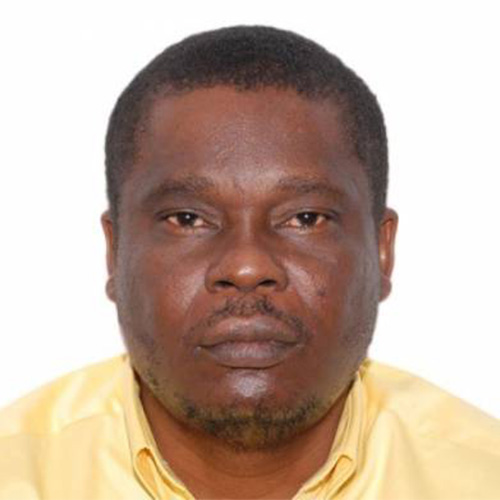 Eric Ogola
Eric Ogola Kenya
Maternal Newborn Child Health (MNCH)
Project – Rational antibiotic use for treatment of sick children in local health facilities
Eric Ogola is an epidemiologist trained at the University of Nairobi and Makerere University in Kampala. He has been involved in research and control of diseases at the human-animal-ecosystem interface for nine years under the collaboration between the Kenya Medical Research Institute and the US Centers for Disease Control. He previously worked as the deputy head of the Integrated Human-Animal Health Programme at the Kenya Medical Research Institute. Ogola is a disease -detective at the human-animal-ecosystem interface. He has been involved in various outbreak investigations against emerging infections including rabies, polio and others. He was part of the WHO National supervisory team during the Kenyan polio outbreak response in 2010. He currently teaches public health students at a state university in Western Kenya. His current research interest is in the area of neonatal sepsis and antimicrobial resistance.
Project – Rational antibiotic use for treatment of sick children in local health facilities
Ogola proposes to reduce deaths in young children by developing an easier way to decide which antibiotic to use in blood-borne infections in children less than one month old. This will reduce deaths in children as a result of blood-borne infections. It will also lead to judicious use of antibiotics and prevent the development of drug resistance. Clinicians in health facilities without laboratories will be able to make an educated guess on the best treatment that is likely to give an effective outcome. Authorities will also be able to monitor the rate of treatment failure and recommend new guidelines in time, thereby preventing more deaths over time.
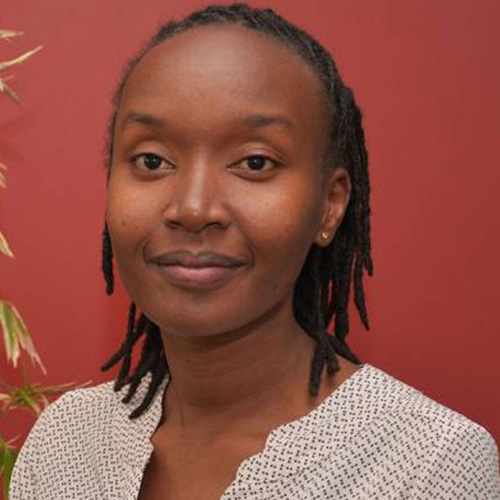 Angela Koech Etyang
Angela Koech Etyang Kenya
Maternal Newborn Child Health (MNCH)
Project-Integration of a package of point of care tests into rural primary care facilities to improve access to basic antenatal screening
Angela Koech Etyang is a physician scientist at the Centre of Excellence in Women and Child Health and an Instructor in the Department of Obstetrics and Gynaecology, Aga Khan University – Nairobi.She is a medical doctor and holds a master’s of medicine (Obstetrics and Gynaecology) degree from the Aga Khan University and an MSc in epidemiology from the London School of Hygiene and Tropical Medicine. She has seven years’ experience in clinical care and over three years’ experience in clinical research in maternal and newborn health. Her research interests are in preeclampsia and the role of infections and inflammation in preterm labour and preterm pre-labour rupture of membranes.
Project-Integration of a package of point of care tests into rural primary care facilities to improve access to basic antenatal screening
Many women in rural Africa visit dispensaries and health centres for care during pregnancy. Despite this, many do not receive recommended screening tests as many of these facilities do not have laboratories. Referring women to off-site laboratories for tests results in delays in testing, starting treatment for women with abnormal results and in some cases women missing tests altogether.
The project aims to make basic screening tests available to pregnant women at dispensaries and health centres that do not have laboratory facilities. These tests screen for conditions such as HIV, syphilis and anaemia. These conditions can be harmful to mother and child but are treatable once detected. We will employ simple existing technologies that enable these tests to be carried out during the clinic visit quickly, easily and by the nurse who is providing the care in pregnancy.We will evaluate whether introducing these tests as a package will integrate well with routine provision of care in these facilities and whether this will result in earlier screening and wider coverage of screening for pregnant women. This is expected to reduce the negative impact of the conditions screened for on pregnancy outcomes.
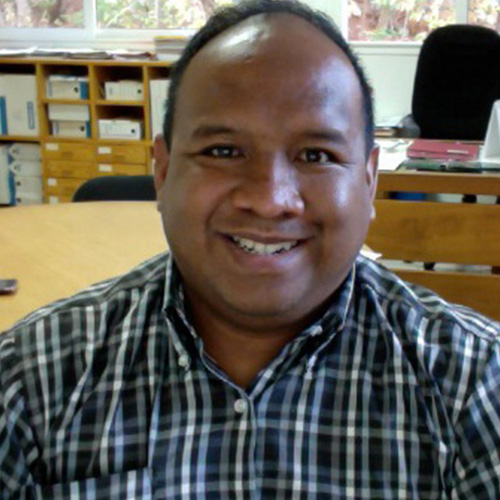 Niaina Rakotosamimanana
Niaina Rakotosamimanana Madagascar
Maternal Newborn Child Health (MNCH)
Project summary: A low-cost tuberculosis diagnostic test for pregnant women
Niaina Rakotosamimanana is the Head of the Mycobacteria Unit at the Pasteur Institute of Madagascar. He has a PhD in microbiology obtained in Paris, France and in Madagascar in 2010. Niaina is in charge of the tuberculosis (TB) research programme, which includes applied and operational projects to evaluate new TB diagnostic tools, molecular epidemiology of the disease, new vaccines trials and drug resistance surveys in collaboration with the National Tuberculosis Program of the Malagasy Ministry of Public Health.
His main research activities are about the host immune responses against tuberculosis and the factors associated to the TB clinical strains diversities. He is also mentoring Bsc, MSc, and PhD international candidates and is a lecturer at the Faculty of Sciences and the School of Medicine of the University of Antananarivo, Madagascar.
Project summary: A low-cost tuberculosis diagnostic test for pregnant women
Rakotosamimanana is developing a low-cost tuberculosis diagnostic and molecular test for pregnant women using dried blood samples drawn from finger pricks. This dried-blood spot based test is minimally invasive, can be used in remote areas where people lack access to all-weather roads and lack of infrastructure that has direct impact on health outcomes. The DBS can be sent via mail to the health centres for testing without established cold chain and meets several of the criteria set by the World Health Organization regarding quality of TB diagnostic tools. Dried-blood samples have a wide range of diagnostic capacity and have been shown to have advantages over other biological samples in terms of cost, ease of collection, transport, and storage.
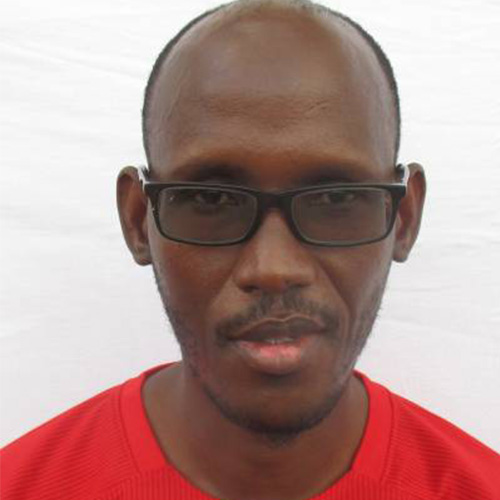 Diawo Diallo
Diawo Diallo Senegal
Maternal Newborn Child Health (MNCH)
Project – Tracking Zika infected mosquitoes: A novel portable system for rapid field detection of the virus to improve maternal and neonatal health
Diallo is a research scientist at the Medical Entomology Unit of the Institut Pasteur de Dakar. His main objective is to better understand the ecology and epidemiology of arboviruses and theirs vectors in order to prevent their spill over to human and domestic animals. Diallo has over 14 years of scientific experience mainly at the Institut Pasteur de Dakar and two other internationally recognised institutions working on mosquito vectors of malaria and several arboviruses (Rift valley fever, West Nile fever, yellow fever, dengue, chikungunya and zika). He has a broad background in medical entomology, with specific training and expertise in arbovirus vectors biology and ecology, virus-vectors interactions, diseases epidemiology and transmission and a substantial experience with field and laboratory methods. He has proven success in scientific research and public health expertise as evidenced by more than 32 publications in internationally recognised peer-reviewed journals. He has served as a reviewer in prestigious international scientific journal. He has an extensive knowledge on emerging vector-borne diseases and a dense network of collaborators at the Pasteur International Network and in the world of international research.
Project – Tracking Zika infected mosquitoes: A novel portable system for rapid field detection of the virus to improve maternal and neonatal health
Diallo will validate and implement a timely and up-to-date surveillance system of zika virus prevalence in the mosquito population in the Kédougou area using an innovative integrated device developed by Gopaul from Institut Pasteur in Paris. This 3-in-1 device includes: 1) a mosquito trap, an analysis station that will carry an antibody based detection system with an easy to read colour change result and 3) a mapping software to create a real-time map of arbovirus infected mosquitoes. The final outcome will be the production of tools that can be used to implement focused and ecofriendly vector control interventions to improve maternal and neonatal health.
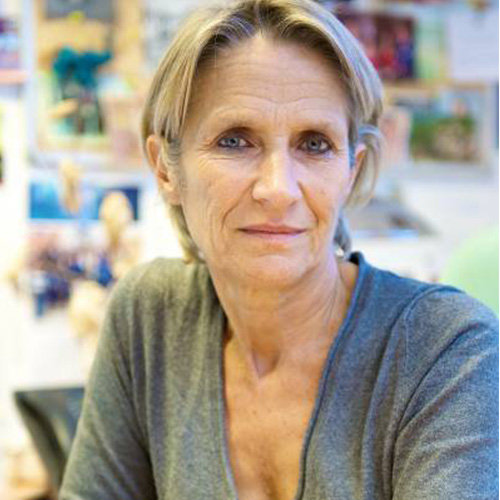 Muriel Vray
Muriel Vray Senegal
Maternal Newborn Child Health (MNCH)
Project- Evaluating a loop-mediated isothermal amplification assay to quantify/semi-quantify hepatitis B virus DNA levels in Senegal
Muriel Vray is an epidemiologist who specialises in clinical research. She is involved in the methodology of pragmatic trials, studies of treatment strategy and evaluation of diagnostic tests. Based at the Institut Pasteur of Dakar since 2015, as head of the Unit of Epidemiology of Infectious Diseases, she collaborates with the epidemiologists of the international network of the Institut Pasteur in order to develop clinical research in the field of infectious diseases. She sits in several committees of drug evaluation and is teaches courses in the methodology of clinical trials and evaluation of diagnostic tests at PhD and MSc level. Vray has been a principal investigator in several epidemiological studies in infectious disease on AIDS, hepatitis B, malnutrition, neonatal infectious and severe diarrhoea in childhood in Africa.
Project- Evaluating a loop-mediated isothermal amplification assay to quantify/semi-quantify hepatitis B virus DNA levels in Senegal
Given the high disease burden associated with hepatitis B virus (HBV) infection, HBV now constitutes one of the health targets in the United Nation’s Sustainable Development Goals. Consequently, the WHO has developed a global strategy to eliminate HBV by 2030, and the prevention of perinatal mother-to-child transmission (PMTCT) became a core intervention in achieving this goal. Since 2009, WHO recommends administering HBV vaccine to all neonates within 24 hours of birth for the PMTCT. However, this strategy alone is unlikely to be adequate because 20-30% of women with high viral load still infect their infants despite the timely vaccination. In resource-rich countries, antenatal screening to identify women with high HBV DNA and subsequent antiviral therapy during pregnancy, a strategy similar to the HIV prevention, has become a recommendation, in addition to the universal birth dose vaccine. However, this strategy is difficult to implement in sub-Saharan Africa because a majority of African women have limited access to the HBV DNA measurement, which is expensive and requires a sophisticated laboratory environment. Here, we propose to evaluate a loop-mediated isothermal amplification assay (LAMP), a simple, robust and inexpensive nucleic acid amplification assay, to quantify/semi-quantify HBV DNA levels in Senegal. In the first step, we will validate the assay in a reference laboratory in Dakar, compared with the reference standard PCR assay. In the second step, we will validate the assay in a decentralised context at a rural health centre in Senegal. We will also evaluate the feasibility and acceptability of the use of LAMP. After the completion of this preliminary evaluation phase of the study using the funding from the Grand Challenge Africa, we plan to further assess the impact of integrating this assay in the PMTCT programme in the prevention of HBV transmission in sub-Saharan Africa.
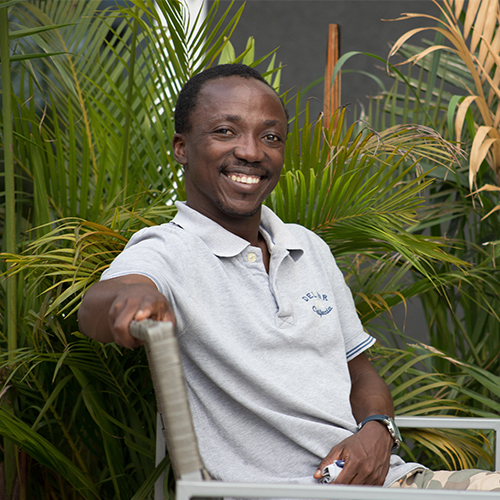 Dr. Kwabena O. Duedu
Dr. Kwabena O. Duedu Ghana
Antimicrobial Resistance (AMR)
To investigate the evolution, composition, overlap and relative importance of antibiotic resistance conferring plasmids and their bacterial host ranges in humans, animals and the environment.
Project Brief
Antibiotic resistance (ABR) is a public health threat and largely attributed to heavy selective pressures resulting from widespread of antibiotic use coupled with the exchange of genetic resistance genes between microorganisms through plasmids. These plasmids can be specific to a type of host(s) limiting their spread or may be broad range with capabilities of spreading across species. Deciphering the complex interaction exits between humans, animals and the environment that supports the spread and evolution of antibiotic resistance can provide clues to stopping the spread and curing antibiotic resistance. The overall aim of the project is to investigate the evolution, composition, overlap and relative importance of antibiotic resistance conferring plasmids and their bacterial host ranges in humans, animals and the environment. The study employs portable next-generation sequencing technologies and machine learning to understand the role of plasmids in the evolution and spread of resistance. The long-term goal is to aid the development of strategies that can slow the spread of antibiotic resistance by gaining insight into the co-evolutionary processes that allow bacteria to improve the persistence of newly acquired MDR plasmids. This fundamental knowledge will support research into drug therapies based on restricting the horizontal transfer or stable replication of drug resistance or virulence plasmids in human pathogens
Bio
Kwabena is a Senior Lecturer and Head of the Department of Biomedical Sciences, University of Health and Allied Sciences, Ghana. He had his undergraduate education in Medical Laboratory Science and masters in Microbiology at the University of Ghana. He pursued a PhD training in Synthetic Biology at the University of Edinburgh, UK. He completed postdoctoral training under the African Partnership for Chronic Disease Research PostDoc Fellowship programme as well as completed the Novartis Global Health Fellowship in Cambridge, Massachusetts, United States. practiced as a Medical Laboratory Scientist for 4 years in the Ghana Health Service. He worked at the National Public Health and Reference Laboratory (NPHRL) and the Clinical Laboratory Unit (CLU), Korle-Bu. He participated in the organization of Trainer of Trainer workshops on malaria diagnosis as well as undertook supervisory monitoring of the USAID Funded Improving Malaria Diagnostics project implemented by the Medical Care Development International in Collaboration with the Ghana Health Service and Ministry of Health. His current research is focused on understanding the role of microbial communities in the spread and evolution of antibiotic resistance, disease pathogenesis and polymer degradation. Some specific areas of work currently include investigations into horizontal transfer of antibiotic resistance determinants within microbial communities in humans, animals and the environment; the causal relationship between the gut microbiome, nutrition, inflammation and obesity; dysbiosis and inflammation as a basis for sickle cell disease crisis; and the role of microbial communities in biomass and plastic degradation. Presently, he is involved in building Africa-led, Africa-focused capabilities involving the use of innovative applications of new technologies that drive innovation in multi-omics research and applications for human health and the environment.
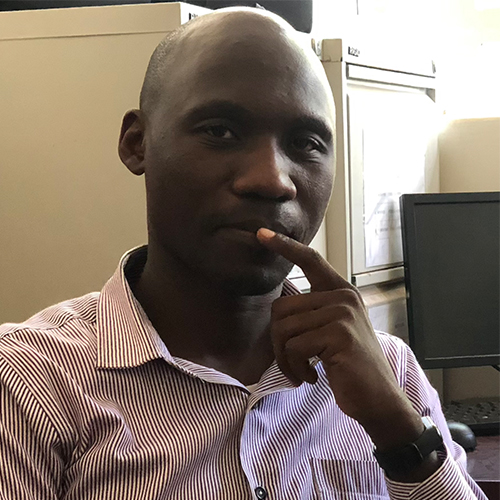 Gerald Mboowa
Gerald Mboowa Uganda
Antimicrobial Resistance (AMR)
Understanding transmission dynamics and acquisition of Antimicrobial Resistance at referral hospitals and community settings in East Africa
Bioinformatics & Genomics Research Fellow,
College of Health Sciences, Makerere University (MakCHS).
Gerald works with the MakCHS as a Research Fellow. His Ph.D research focused on identifying host functional genetic loci that are important in pediatric HIV/AIDS disease progression in sub-Saharan Africa populations. This work was funded by United States’ National Institutes of Health (NIH) through the Collaborative African Genomics Network (CAfGEN) of the H3Africa consortium (NIH Grant #: 1U54AI110398) and the DELTAS Africa Initiative Grant #: DEL-15-011 through the Training Health Researchers into Vocational Excellence in East Africa (THRiVE-2).
Gerald started his research career with a lot of wet-lab work but has over time transitioned to applying bioinformatics tools to analyse genomics data generated from exploring microbiological questions particularly those pertaining pathogen typing genomic characterization and antimicrobial resistance (Computational microbiologist). Gerald formulates hypotheses, runs experiments as well as analyses, trouble-shoots these analyses, and does interpretation of the same.
Project - Understanding transmission dynamics and acquisition of Antimicrobial Resistance at referral hospitals and community settings in East Africa
This study will combine conventional microbiology methods, whole genome sequencing, as well as social and behavioral sciences-based methods and, a combination of both longitudinal and retrospective study designs to generate knowledge with the potential to transform our understanding of the local and global emergence and spread of antimicrobial resistance especially in hospitals and community settings. This study will also elaborate the acquisition and transmission dynamics of antimicrobial resistance between communities or within communities over time. Furthermore, this project will also provide an ecological perspective that can integrate environmental monitoring of antimicrobial resistance in community settings with monitoring of antimicrobial resistance in the hospital settings. In addition, the study will also expand the available primary data in regards the understanding of the global antimicrobial resistance epidemiology, will contribute towards improving infection control in hospitals and community settings as well as provide potentially leverageable opportunities to build in new ways on existing public health interventions and/or antimicrobial resistance monitoring platforms.
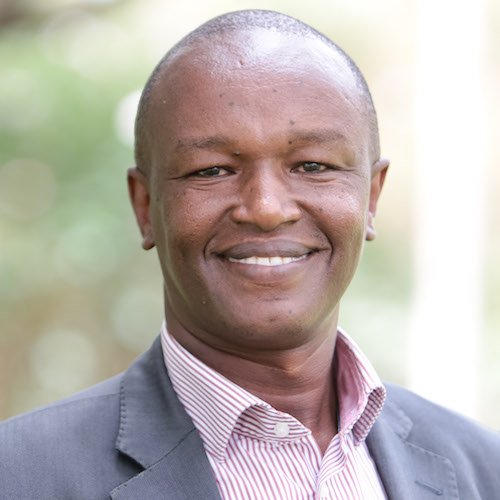 Dr John Kagira
Dr John Kagira Kenya
Antimicrobial Resistance (AMR)
Project – The Human-Animal Health Barrier: The Role of Livestock-Associated Methicillin-Resistant Staphylococcus aureus (MRSA) under Pastoralist and Sedentary Farming Systems in Kenya
Dr John Kagira is a Senior Lecturer in the Department Animal Sciences in the College of Agriculture and Natural Resources, Jomo Kenyatta University of Agriculture & Technology. He completed his PhD at University of Nairobi in 2010 and his research work has mainly focused One Health approach in investigating the epidemiology, economic importance and control of zoonoses in East Africa.
His research has been funded by various donors including World Bank, National Research Fund and Bill and Melinda Gates, amongst others.
Kagira’s area of interest is One Health approach with focus on investigating the bacterial and parasitic diseases transmitted between animals and man. He has supervised 2 PhD and 9 MSc students. Currently he is supervising 4 MSc students who are investigating the molecular epidemiology of antibiotic resistant bacteria isolated from dairy cattle and goats in Kenya. He is also supervising several PhD (4) and MSc students (5) undertaking research in epidemiology of zoonoses as well as development of novel drugs against bacterial and parasitic zoonoses. Kagira has published over 80 peer-reviewed articles and has presented his research findings at several conferences and workshops. Besides research, he is also involved in teaching undergraduate and postgraduate students.
Project – The Human-Animal Health Barrier: The Role of Livestock-Associated Methicillin-Resistant Staphylococcus aureus (MRSA) under Pastoralist and Sedentary Farming Systems in Kenya
The project is using One Health approach in investigating the emergence and spread of Methicillin Associated Staphylococcus aureus (MRSA) and other antibiotic resistant bacteria at the human-animal interface in Kajiado and Kiambu Counties in Kenya. The study is a continuation of Kagira’s work on surveillance of antimicrobial resistance (AMR) in livestock in Kenya. Preliminary work by Kagira and a team of researchers have shown high prevalence of AMR in bacteria isolated from ruminants having mastitis. Consumption of milk/milk products contaminated with resistant bacteria as well as close interaction between livestock and people is a critical entry point of these microorganisms into the food chain. Indeed, recent studies in Kenya have shown high prevalence (>84%) of MRSA at human hospital settings leading to increased morbidity, mortality, and financial constraints. The current project is geared towards using modern molecular tests such as genetic typing to provide the much needed evidence that livestock associated-MRSA and other resistant bacteria are able to breach the livestock-human barrier and cause severe disease in man. Results of the project will be used in informing One Health policies on surveillance and management of AMR where veterinary and medical authorities work together in managing the menace.
 Tobias Louw
Tobias Louw South Africa
Antimicrobial Resistance (AMR)
Project - Knowledge loops for the containment of drug-resistance: driving change by correlating risk and infections
Tobi Louw is currently a Senior Lecturer and the Undergraduate Programme Coordinator at the Department of Process Engineering at Stellenbosch University, South Africa. His interest in the mathematical modelling and analysis of biological processes starting during his PhD at the Department of Chemical and Biomolecular Engineering at the University of Nebraska-Lincoln, where he simulated the mechanotransduction of ultrasonic stimulation on cartilage cells in the context of tissue engineering.
Tobi currently focusses on the use of mathematical modelling and machine learning techniques to develop a deeper understanding of various dynamic processes, ranging from microbial ecology to the mining industry. He is particularly interested in the combination of fundamental mathematical descriptions and statistical predictions in a hybrid modelling approach. He is currently supervising or co-supervising two post-doctoral research fellows, three PhD students and ten Masters students.
Project - Knowledge loops for the containment of drug-resistance: driving change by correlating risk and infections
The aim of the project is to use advanced statistical and machine learning techniques to interrogate the vast amount of existing data relating to antimicrobial resistance (AMR). It is of importance to identify key risk factors driving clinical cases of resistant infections in a One Health framework.
The project relies on a network of researchers across Africa generating relevant data, which implies that the data will come in many different forms and wildly varying quality. This is seen as part of the key research question: instead of assessing the data from a binary perspective (i.e. “Yes, a correlation exists” or “No, there is no correlation”), we will ask “What is the most we can possibly get out of the data, and what is the most cost-effective way to improve prediction?” AMR surveillance will always be limited in resource constrained settings; our research will assess the potential of generated data and identify lowest hanging fruit within these constraints.
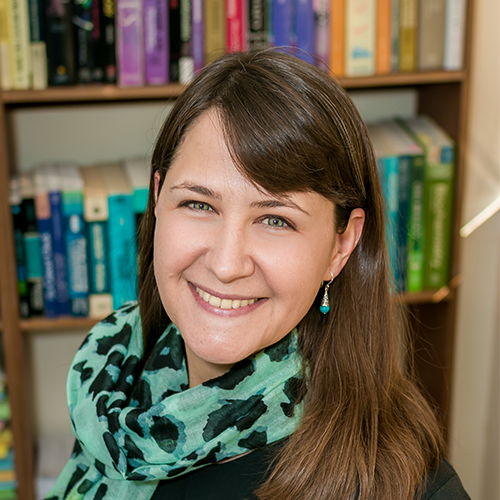 Adrienne Lesley Edkins
Adrienne Lesley Edkins South Africa
Drug Discovery (DD)
Project - The DnaJ-DnaK-GrpE complex as a selective drug target in Mycobacterium tuberculosis
Adrienne is Associate Professor of Biochemistry at Rhodes University in the Department of Biochemistry and Microbiology, NRF/DST SARChI Chair in Molecular and Cellular Biology of the Eukaryotic Stress Response (since Dec 2015) and recipient of a Newton Advanced Fellowship from the Academy of Medical Sciences (UK) (2018-2021). She serves as the Director of the Rhodes University Biomedical Biotechnology Research Unit (BioBRU). Adrienne completed her PhD degree in cellular biochemistry from Glasgow University under the supervision of Bill Cushley on the Wellcome Trust Four Year PhD fellowship in Molecular Basis of Disease. Adrienne’s research is focused on understanding the molecular mechanisms that control protein homeostasis in health and disease, and consequently allow cells to survive transient or sustained environmental stress. An NRF Y1 rated researcher, her research track record in this area includes 49 peer-reviewed publications, 8 book chapters and 3 edited books and training of 48 postgraduate students (14 PhD and 28 MSc). She has been the recipient of the Rhodes University VC Distinguished Research Medal (2015) and the Department of Science and Technology (DST) South African Women in Science (SAWiSA) Award for Distinguished Young Scientist in the Natural/Engineering Sciences (2018). She is an elected Fellow of the African Academy of Sciences (AAS) since 2018 and a member of the Academy of Sciences of South Africa (ASSAf) since 2017.
Project - The DnaJ-DnaK-GrpE complex as a selective drug target in Mycobacterium tuberculosis
The ability to detect, respond and cope with stress is essential for the survival of all organisms. Central to this, is the ability to maintain the structure and function of the cellular proteome. This protein homeostasis requires a group of highly conserved proteins, known as molecular chaperones to catalyse protein folding on a biological timescale and to counteract stress-related denaturation. Mycobacterium tuberculosis (Mtb) experiences numerous stresses in the host cell, including reactive oxygen species and chemotherapy, which challenge protein homeostasis and lead to a heightened requirement for chaperones. Mtb DnaK-DnaJ chaperones are essential proteins and are also required for drug resistance and control cell permeability which are important factors for effective TB treatment. The project will evaluate the role of the DnaK-DnaJ chaperone complex from Mycobacterium tuberculosis (Mtb) as a drug target by a combination of target-based and phenotypic screening against the Mtb chaperones and human equivalents. The aim is to identify selective modulators of the Mtb chaperone complexes to support development of newer, more effective therapies.
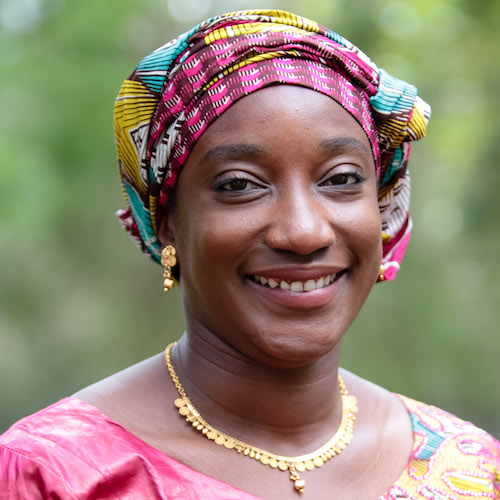 Dinkorma Ouologuem
Dinkorma Ouologuem Mali
Drug Discovery (DD)
Project: Development of an ex-vivo transmission blocking assay for clinical isolates of matured Plasmodium falciparum gametocytes through membrane feeding assays
Dinkorma Toure Ouologuem is an Associate Professor of Cell biology at the Faculty of Pharmacy of Bamako, Mali. She is also working at the Malaria Research and Training Center of Mali. She has obtained her Ph.D. degree in Cell Biology from the University of Pennsylvania, in Philadelphia, USA in 2014 and her doctoral work focused on elucidating the fascinated mode of replication of Plasmodium parasite, using Toxoplasma as an experimentally tractable system.
Her goal as a researcher at the MRTC is to set up a research unit focusing on understanding the biology of malaria parasite transmission between the human host and the mosquito vector. She is also interested on the susceptibility of Plasmodium transmissible stages to therapeutic intervention.
Project: Development of an ex-vivo transmission blocking assay for clinical isolates of matured Plasmodium falciparum gametocytes through membrane feeding assays
The gametocyte project that she is embracing aims to develop an assay to measure the activity of antimalarial drugs on the transmission of the malaria parasite. The current tools for the assessment of gametocytocidal drug activity in vivo and in vitro are technically challenging. Besides, the existing experimental tools often rely on conventional laboratories adapted strains which may not be reflective of the plasmodial population circulating in malaria-endemic regions. The assay that she is developing will exploit Plasmodium gametocytes that will be isolated from malaria infected-volunteers blood. Parasites will be exposed ex-vivo to selected antimalarial drugs, and the transmission blocking capability will be evaluated using the gold standard mosquito feeding assay. This innovative work is anticipated to be a useful addition to the current tools for drug discovery and to support the malaria eradication agenda.
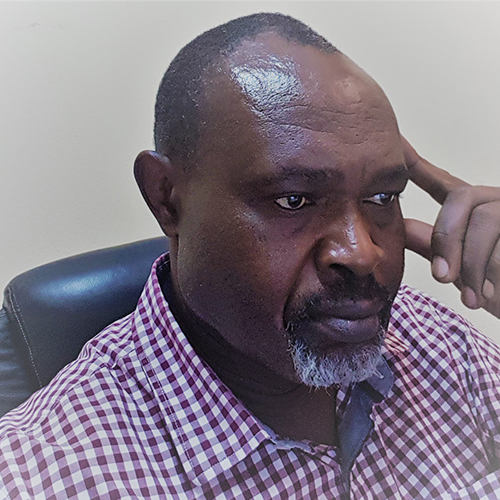 Fabrice Fekam Boyom,
Fabrice Fekam Boyom, Cameroon
Drug Discovery (DD)
AAS-GC Research Project: Discovery of new drug candidates against malaria, leishmaniasis and trypanosomiasis through screening of chemical libraries.
Dr. Fabrice Fekam Boyom completed a Doctorat 3ème Cycle (DSc) in 1992 and a Doctorat d’Etat (ScD) in 2004 in Biochemistry from the University of Yaoundé, Cameroon. He also completed postdoctoral studies in chemistry and pharmacology of biomolecules (Université de Montpellier 2, France 1993; 2000-2002) and in antimalarial drug discovery (Senior Fulbright Scholarship- University of California, San Francisco, USA. 2002-2003) where he also had much training in important aspects of drug discovery against infectious diseases including, but not limited to, bio-guided phytochemistry, cells/parasites culture, in vitro/in vivo drug screening, and animal welfare in biomedical research. He is currently Full Professor (since 2015) and Head of the laboratory for Phytobiochemistry and Medicinal Plants Studies with main focus on Search for Antimicrobial and Biocontrol Agents (AmBcAU). Available facilities and expertise at AmBcAU enable routine performance of mammalian cells and parasites culture and middle-high throughput in vitro screening, in vivo assays, toxicological assays. AmBcAU has repurposed with success the Open Access MMV Malaria/Pathogen/Stasis Boxes to discover potent inhibitors of Toxoplasma gondii, Entamoeba histolytica, Leishmania spp., and Mycobacterium ulcerans. Prof. Boyom has supervised over 20 PhD theses and 50 Masters Dissertations in the field of Biochemistry of natural substances and drug discovery research, and has published more than 200 research papers and presentations in reputed journals and international conferences. He also endeavors as editorial board member and reviewer for many high standards peer-reviewed journals. He has signed MoUs with many centers of excellence worldwide (Centre Pasteur du Cameroun, 2014, the International Centre For Genetic Engineering and Biotechnology, India, 2017, the University of South Florida, USA, 2017) and Pharmaceutical Companies (Johnson&Johnson, 2018; EISAI, 2018) as frameworks for collaboration on drug discovery against malaria, leishmaniasis, HAT, buruli ulcer and other NTDs, and students training.
AAS-GC Research Project: Discovery of new drug candidates against malaria, leishmaniasis and trypanosomiasis through screening of chemical libraries.
Recent estimates indicate that malaria, leishmaniasis and Human African trypanosomiasis continue to claim millions of lives. The throbbing burden of these diseases is mainly associated with drug resistance and other side effects. Therefore, to flush new candidates into the drug development pipeline, this project builds on intra-African and international (Pharmaceutical companies, Academic institutions) collaborations to identify medicinal chemistry starting points from the screening of target-based chemical libraries against the causative agents of malaria, leishmaniasis and HAT. Overall, we anticipate that this project will deliver potent candidates for further drug discovery against malaria, leishmaniasis and HAT.
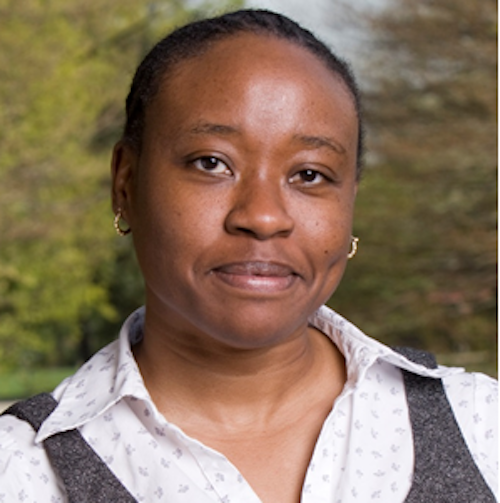 Iruka N Okeke
Iruka N Okeke Nigeria
Drug Discovery (DD)
Project - Anti-adhesins with therapeutic potential for enteroaggregative Escherichia coli diarrhoea.
Iruka N Okeke is a Professor of Pharmaceutical Microbiology at the University of Ibadan, Nigeria. She received B. Pharm, M.Sc. and Ph.D. degrees from Obafemi Awolowo University (formerly University of Ife), Nigeria and underwent postdoctoral training at Uppsala Universitet, Sweden and the University of Maryland Medical School.
Okeke’s lab studies bacterial colonization and antimicrobial resistance. Their research is focused on the molecular epidemiology of enteric pathogens, the molecular mechanisms by which bacteria adhere as well as molecular dissection and genomic surveillance of antimicrobial resistance. The group recently launched a drug discovery project to identify small molecules with antibacterial and antivirulence activity against neglected bacterial pathogens.
Iruka is a fellow of the Nigerian and the African Academies of Science. She teaches and is extensively published in the fields of microbiology, genetics and science and technology studies. Iruka is the Editor-in-Chief of the African Journal of Laboratory Medicine. She is a member of Nigeria’s Technical Working Group on Antimicrobial Resistance and advises other organizations on drug resistance.
Project - Anti-adhesins with therapeutic potential for enteroaggregative Escherichia coli diarrhoea.
The relatively unknown and understudied enteric pathogen enteroaggregative Escherichia coli (EAEC) is an important cause of infantile diarrhoea in Nigeria, other African countries, and elsewhere in the world. EAEC are exceptional colonizers that form copious biofilms and can contribute to nutritional deficiency even when they do not cause overt diarrhoea. Iruka N Okeke’s lab studies EAEC colonization and is academic home to pharmaceutical chemistry doctoral student David A. Kwasi. With chemists Chinedum P. Babalola, Uzochukwu Ikemefuna and OlujIde Olubiyi, Iruka and David aim to discover molecular scaffolds that could be forerunners of EAEC therapeutics. Following a small molecule library screen, the team is evaluating hits, determining their mechanisms of action and their potential to be progressed as drug candidates. The group will also apply their anti-biofilm screen to other small libraries with a view to increasing the repertoire of promising leads against EAEC and other neglected enteric pathogens.
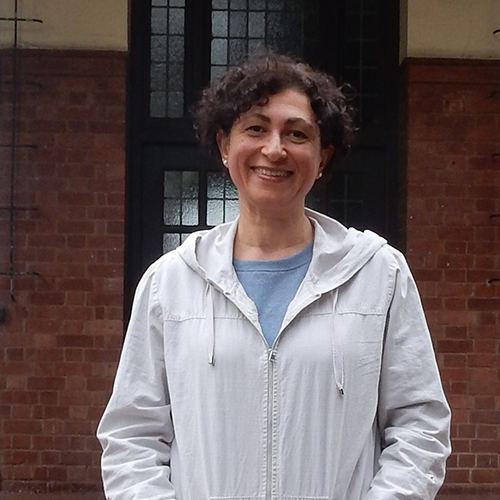 Özlem TASTAN BISHOP
Özlem TASTAN BISHOP South Africa
Drug Discovery (DD)
PROJECT: SNPs, Allosteric Modulations, Dynamic Residue Networks: Combined Approaches towards Modern Computational Drug Discovery
Özlem received her BSc degree in Physics from Boğaziçi University, Istanbul, Turkey. Then she moved to the Department of Molecular Biology and Genetics at the same University for her MSc degree, entitled “The molecular basis of alpha-thalassemia in Turkey: Establishment and ppplication of PCR-based methods”. She obtained her PhD from Max-Planck Institute for Molecular Genetics and Free University, Berlin, Germany in 2003. The title of her PhD thesis is “How lazy are the tRNAs on the ribosome? New insights for the - model”. While doing her PhD, Özlem became interested in structural biology, and during her postdoctoral positions (Texas University, USA; University of Western Cape and University of Pretoria, South Africa) she gained experience in structural bioinformatics as well as structural biology. During her education Özlem received numerous fellowships and awards, including Turkish Government Education Scholarship (Turkey), British Council Research Scholarship (UK), Monbusho Research Student Scholarship (Japan), Deutsche Forschungsgemeinschaft (DFG) PhD fellowship (Germany), NRF Free-Standing Postdoctoral Fellowship (South Africa) and Claude Leon Foundation Postdoctoral Fellowship (South Africa).
In October 2009, Özlem took up a senior lecturer position at Rhodes University, South Africa. She initiated a one-year MSc programme in bioinformatics by coursework and research thesis in 2011, which was the first such programme in Africa, and established Research Unit in Bioinformatics (RUBi) in 2013. Since joining Rhodes University, Özlem has graduated 10 PhD students, of whom she was main supervisor to 8, and 30 MSc students. Currently, Özlem is supervising 18 PhD, 2 MSc and 1 Honours students, as well as mentoring one junior academic staff member and two postdoctoral fellows. She has over 50 peer-reviewed articles in internationally accredited journals including, Science, Briefing in Bioinformatics, Bioinformatics, Human Mutation, Scientific Reports, Biophysical Journal, and Journal of Chemical Information and Modeling.
Özlem’s broad research interest is structural bioinformatics and bioinformatics education. She is a member of international education bodies including ISBC Education committee and Global Organisation for Bioinformatics Learning, Education & Training (GOBLET). Özlem is also honorary member of Golden Key. Özlem was co-founder and the first president of the South African Society for Bioinformatics (SASBi) (September 2012 – October 2014), and mentor to SASBi Student Society (October 2014 – September 2016).
PROJECT: SNPs, Allosteric Modulations, Dynamic Residue Networks: Combined Approaches towards Modern Computational Drug Discovery
Traditional computational drug discovery provides a faster and cheaper way of identifying target specific potential hit compounds than screening them in vitro as a first step. However, it misses a number of important aspects. For instance, continuously emerging resistant strains of pathogens to current drugs present an immense challenge for the eradication of many infectious diseases. The effects of mutations on the function of protein drug targets may lead to drug resistance; these effects should be understood in parallel to the traditional computational approach. Importantly, sometimes these resistant mutations are far from drug binding sites, and can only be analyzed by considering proteins as dynamic networks. Further, it is crucial to identify alternative potential drug targeting sites other than the orthosteric ones, as it is challenging to handle drug selectivity at the active site of an enzyme due to it being highly conserved within the protein family. This research proposes to apply new protocols that have been developed at RUBi combined together with traditional computational drug discovery approach to further improve our understanding in rational drug discovery in the context of tuberculosis and malaria. Additionally, where applicable, we aim to identify novel hits from African natural compounds against these diseases as screening of them may lead to the development of novel pharmaceutics in Africa.
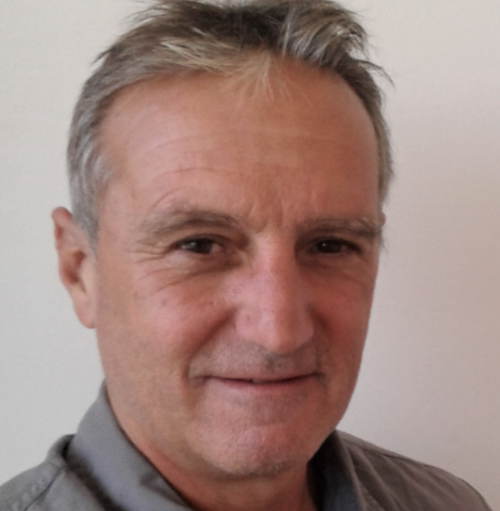 Heinrich Hoppe
Heinrich Hoppe South Africa
Drug Discovery (DD)
Project - Novel Arf GTPase assays for antimalarial drug discovery
Heinrich Hoppe completed his PhD in malaria parasite cell biology in 1994 at the University of Pretoria, South Africa. Subsequently he held postdoctoral fellowships at the University of Cape Town and Yale University, studying TB and Toxoplasma cell biology, respectively. From 2003-07 he performed malaria parasite cell biology research as a Wellcome Trust International Research Fellow at the University of Cape Town, after which he led the Pharmacology Research Group at the South African Council for Scientific and Industrial Research. In 2011 he was appointed Associate Professor of Biochemistry at Rhodes University, the post he currently holds. Besides undergraduate teaching in Biochemistry, he is currently supervising 2 PhD and 4 MSc students and has co-authored 79 journal articles. His main research interest is the development and implementation of bioassays for drug screening.
Project - Novel Arf GTPase assays for antimalarial drug discovery
ADP-ribosylation factor (Arf) proteins are small GTPases that are key regulators of protein trafficking in eukaryotic cells. Arf1 is essential for the delivery of newly synthesised secretory proteins to their correct cellular destinations via the Golgi apparatus and has been proposed as an attractive cancer drug target. Arf1 has also been found to be highly conserved in malaria parasites, Golgi localised and essential for blood-stage parasite viability. Current Arf1 inhibitors act by disrupting the activation or deactivation of the GTPase by regulatory proteins – guanine nucleotide exchange factors (ArfGEFs) and GTPase activating proteins (ArfGAPs), respectively – and have been found to inhibit malaria parasite viability at low micromolar concentrations. Discovery of additional Arf GTPase inhibitors is hampered by the lack of robust plate-based screening assays. The focus of the project is to develop novel assays to detect the activation and deactivation of malaria Arf1 by GEFs and GAPs and employ the assays to screen compound libraries for potent inhibitors. The overall goal is to use the inhibitors to validate Arf1 as an antimalarial drug target.
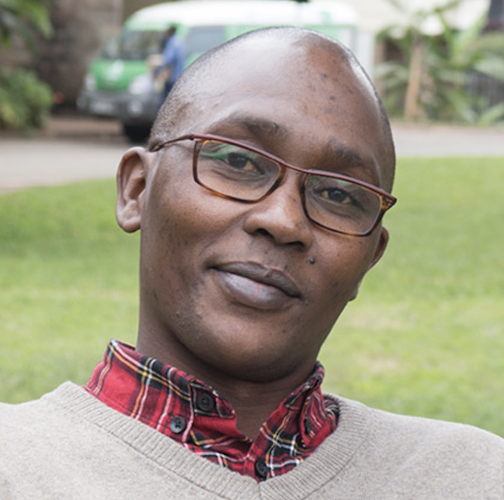 Edwin Murungi
Edwin Murungi Kenya
Drug Discovery (DD)
Project: Targeting protein kinases for the development of novel drugs for trematode infections
Edwin Murungi is a Senior Lecturer in the Department of Medical Biochemistry, School of Health Sciences, Kisii University. Edwin obtained his PhD in Bioinformatics from the South African National Bioinformatics Institute (SANBI), University of the Western Cape in 2012 with Professor Alan Christoffels. Prior to that, he was awarded an MSc in Structural Biology from the University of Cape Town in 2007 and a Bachelor of Pharmacy degree from the University of Nairobi in 2003.
Edwin’s research interest is in the computational elucidation of putative drug targets for neglected tropical diseases. He is currently supervising four MSc students who are working on various aspects of target discovery. Edwin has presented his research findings at several conferences and workshops and is the author of 10 peer-reviewed articles in reputable scientific journals.
Project: Targeting protein kinases for the development of novel drugs for trematode infections
The project is aimed at the identification of conserved, trematode specific protein kinases that will subsequently be evaluated as putative targets for approved kinase inhibitors via a drug repurposing strategy. This approach has particular promise of fast-tracking compounds into clinical studies.
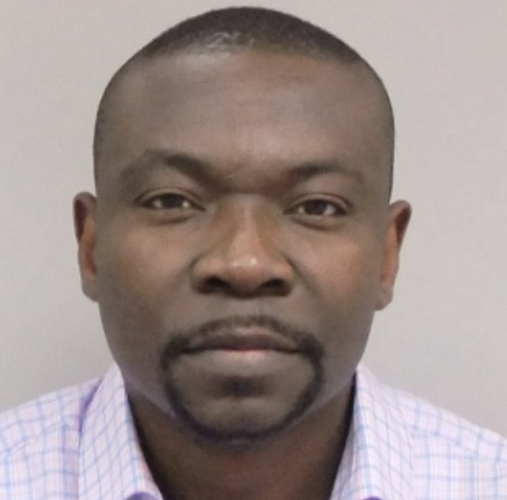 Richard Amewu
Richard Amewu Ghana
Drug Discovery (DD)
Project: Medicinal chemistry progression of MMV696444 identified from the MMV Pathogen Box for malaria and tuberculosis
Dr Richard Amewu is a Senior Lecturer at the Department of Chemistry at University of Ghana and has since established a maiden Drug Discovery group focusing on synthesis of small molecules. Richard is a Medicinal Chemist with interest in the development of novel therapeutic agents for neglected diseases. He is a synthetic organic chemist with special interest in drug-design, chemical biology and medicinal chemistry of antimalarial, antimycobacterial, and anticancer drugs as well as neglected diseases.
Richard had both his MSc and PhD at University of Liverpool and played major roles in several projects in the Liverpool Drug Discovery group. Research undertaken by Richard resulted in 4 patents and 25 high impact peer reviewed publications with two drug candidates selected for evaluation as potential malaria drugs.
Project: Medicinal chemistry progression of MMV696444 identified from the MMV Pathogen Box for malaria and tuberculosis
This project seeks to continue medicinal chemistry efforts on MMV696444 scaffold from the MMV Pathogen box. Novel compounds shall be designed and synthesized for microbial/parasite and ADME screening in order to establish any Structural Activity Relationships (SAR) and structure property relation (SPR) profile and to discover an early lead with in vivo antitubercular/antimalarial activity as a proof-of-concept.
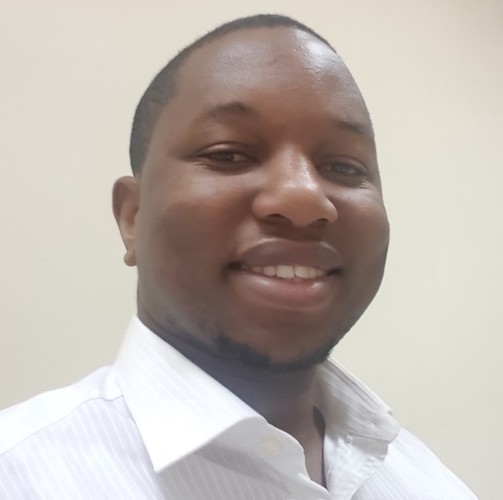 Marvin Ayazika Nakwagala
Marvin Ayazika Nakwagala Uganda
WASH
Project: Digital water Automatic Teller Machine
To use digital water Automatic Teller Machine (ATM) dispensers and electronically rechargeable water ATM cards to improve access to sustainable and affordable clean water in poor peri-urban cities in DRC. This innovation will help reduce queuing times and gender-based violence against women and children who are normally obliged to walk at specific times in the early mornings or late evenings to access water points. The innovation will also improve the financial management of revenue from water for water providers to support sustainable operation and maintenance of water systems and expenditure by customers, through facilitating the payment of water upfront, allowing measurement of water sold and providing a digital audit trail to mitigate fraud.
Uganda
WASH
Project: One Stop Digital Sanitation Solution Centre
To establish a One Stop Digital Sanitation Solution Centre, a dashboard/digital platform that harmonizes the Ministry of Health and Urban governments’ WASH indicators and links government, service providers, entrepreneurs and end users to support and improve multi-sectoral decision making, planning, and provision of safely managed sanitation services to peri-urban settlements of Kampala city in Uganda.
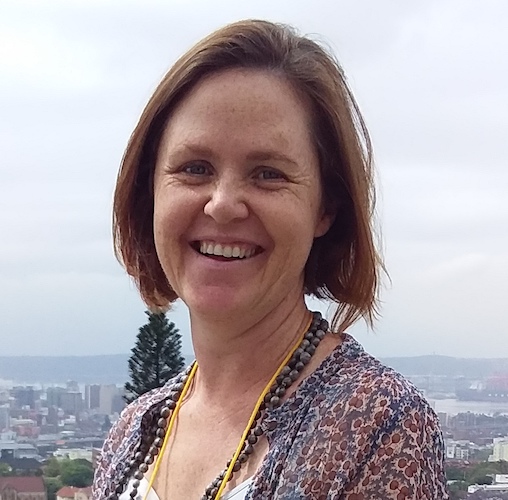 Faye Brownell
Faye Brownell South Africa
WASH
Project: Develop and test a pollution monitoring and management system
To apply Information and Communication Technology (ICT) to develop and test a pollution monitoring and management system which will connect community- based Pollution Control Officers and local government to effectively drive change in municipal responses to incidents of water pollution. The project will focus on rapid identification of sources of faecal and solid waste pollution sources that affect water quality and subsequently human health. It will involve tracking pollution due to sewage leaks, pump malfunctions or other environmental problems as well as solid waste challenges linked to water quality and sanitation.
South Africa
WASH
Project: Develop a software platform (accessible through text messaging and a mobile application) for women in informal settlements
To develop a software platform (accessible through text messaging and a mobile application) for women in informal settlements to report and receive real time information in cases where accessing public latrines and water sources may be a risk to their safety. The information will then be linked to service providers and community leaders to increase efficiency of maintenance of facilities and ensure they are safe for women and children to use.
 Titus Kuria
Titus Kuria Kenya
WASH
Project: Platform and integrated mobile technologies to implement efficient digital customer support strategy and streamline waste collection
To develop an ICT (Information & Communication Technology) platform and integrated mobile technologies to implement efficient digital customer support strategy and streamline waste collection, for Fresh Life's fast-growing network of toilets. End users will be able to utilize the platform to report maintenance and give feedback on sanitation products or services, among other applications. The platform will allow Fresh Life Initiative to improve their delivery of services through data collection for monitoring quality and standards of services by tracking efficiency and maintenance of waste collection and other sanitation products or services that Fresh Life Initiative provides to informal settlements in Nairobi, Kenya.
Kenya
WASH
Project: Smart water monitoring system
Development of HydroIQ, a Global Positioning System (GPS) and internet-enabled device plugged into existing water supply systems and along water distribution networks to automatically monitor water use, water quality and water leakages using sensors and send data to an online platform in real-time, thereby turning traditional water systems into smart water grids to improve water use and billing efficiency, sanitation and hygiene in urban areas.
Uganda
WASH
Project: Mobile-enabled Geographic Information System (GIS) technology and an embedded point-based reward system/application to track faecal sludge management (FSM) patterns among waste entrepreneurs
To utilise a mobile enabled Geographic Information System (GIS) technology and an embedded point-based reward system/application to track faecal sludge management (FSM) patterns among waste entrepreneurs and subsequently inform issuing of incentives and subsidies to them. The incentives and subsidies will be issued based on the volume of faecal sludge emptied. The reward system will comprise integration of a point-based incentive system and a micro-loan as well as a non- cash incentive that facilitates day to day business running requirements needed for safe pit emptying.
Uganda
Antimicrobial Resistance (AMR)
Project: Data on AMR indicators- antibiotic prescriptions, drug sensitivities and resistance patterns from the private sector
To capture data on AMR indicators- antibiotic prescriptions, drug sensitivities and resistance patterns from the private sector (human and animal clinics and laboratories) to generate evidence that will contribute to improving antibiotic prescription practices, epidemiological surveillance and effective control of AMR in Uganda.
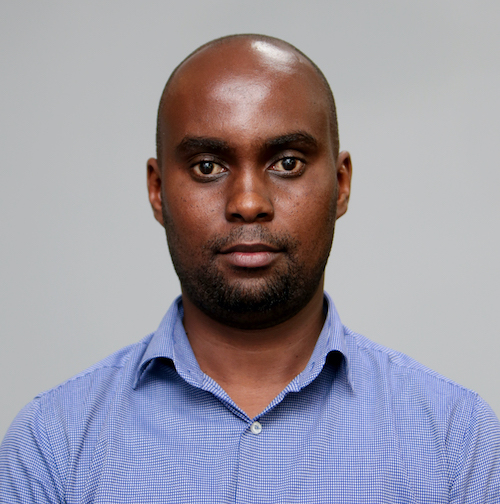 Eric Ng’eno
Eric Ng’eno Kenya
Antimicrobial Resistance (AMR)
Project: Application of ecological niche models in predicting the spatial distribution of antibiotic resistance carriage risk
Timely, holistic and accurate information on antibiotic resistance is important for guiding public health actions and treatment decisions. Nge’no’s research explores application of ecological niche models in predicting spatial distribution of antibiotic resistance carriage risk, using antibiotic-use and environmental data.
Nigeria
Antimicrobial Resistance (AMR)
Project: Identify and understand drivers of antimicrobial resistance responsible for emergence of extended spectrum beta-lactamase
Dr Mohammed Lamorde is the Head of Department of the Prevention, Care and Treatment Programme at the Infectious Diseases Institute, Makerere University. His project seeks to identify and understand drivers of antimicrobial resistance responsible for emergence of extended spectrum beta-lactamase (ESBL) Escherichia coli and Klebsiella pneumoniae in pediatric and maternal populations within Uganda.
South Africa
Antimicrobial Resistance (AMR)
Project: Metagenomic population-based surveillance of antimicrobial resistance in South Africa
The proposed project aims to investigate the prevalence of AMR in the human population and will work from the hypothesis that metagenomic sequencing of human sewage can be used to detect, and in combination with epidemiological / ecological modeling, explain and predict emergence and trends of AMR. Sewage will be sampled from eight cities and sites across South Africa, deep metagenomic sequenced, the raw data shared into a common global secure cloud and thoroughly analyzed for abundances of AMR genes, taxonomic composition and other genes of relevance using a standardized bioinformatics pipeline for this purpose.
South Africa
Antimicrobial Resistance (AMR)
Project: Distribution of antibiotic profiles and antibiotic resistance associated with tuberculosis treatment regimens from wastewater treatment plants (WWTPS) in Africa
The aim of the project is to determine whether the antibiotic profile found WWTPS may be used as a proxy of community antibiotic usage. The antibiotic resistant bacteria (ARB) and antibiotic resistant gene (ARG) profiles in WWTPs and receiving environments in South Africa and other African countries will also be determined with the intention of providing mitigating strategies to prevent their release into the receiving environment.
South Africa
Antimicrobial Resistance (AMR)
Project: Antimicrobial resistance prevalence and transmission between animal feed and humans
The main aim of the project is to investigate use of molecular methods for detection of resistance genes without culturing organisms and the study proposes a new innovative approach to combine genomic data analysis with epidemiological evidence to explain patterns of AMR transmission between food animals and humans.
South Africa
Antimicrobial Resistance (AMR)
Project: The ICU Microbiome Project: the ecology of AMR
The goal of this project is to establish an ICU-based sentinel surveillance network in Africa, describe prevalent and incident patterns of colonization in representative ICU’s and evaluate the correlation between AMR patterns in clinical isolates and in surveillance cultures of the ICU microbiome. Sentinel surveillance through ICU AMR monitoring and data sharing could be used identify modifiable factors in the persistence and spread of AMR.
 Yogan Pillay
Yogan Pillay South Africa
Maternal Newborn Child Health (MNCH)
Project summary: Building Maternal Knowledge and Readiness in the Perinatal Period
The Amandla Mama: Building Maternal Knowledge and Readiness in the Perinatal Period project builds on work done to address the gaps in knowledge that many pregnant women have in both understanding their pregnancy and the development of the foetus as well as how to navigate the health system. It is becoming increasing clear that good health outcomes for mom and baby requires the co-production of good health practices by both pregnant women, their families and nurses and doctors. Many of the causes associated with poor maternal and neonatal outcomes can be avoided by providing information and good communication.
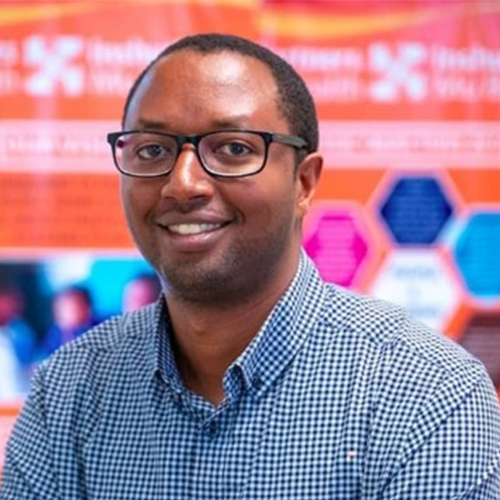 Evrard Nahimana
Evrard Nahimana Rwanda
Maternal Newborn Child Health (MNCH)
Project: Testing a New Cadre of Expert Mother Workers to Improve Care and Child Outcomes
Efforts to reduce neonatal mortality have included the expansion of care for small and sick newborns, which has the potential to save 1.9 million newborn lives. However, less attention has been paid to increases in developmental disability that occur as children survive the neonatal period with significant morbidity.
The project plans to test the delivery of a peer-support model using Expert Mothers for the provision of nurturing care to small and sick newborns in 2 district hospitals in Rwanda through a quasi-experimental pre-post design.
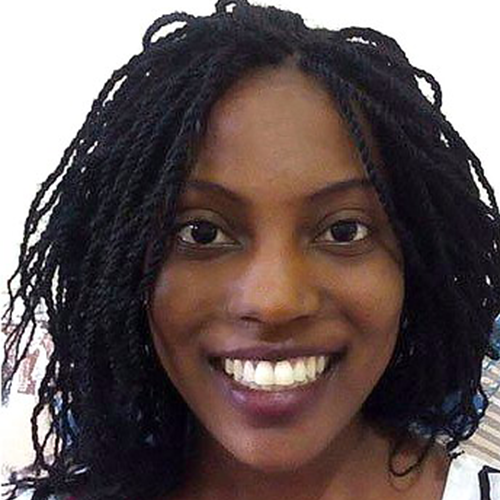 Assumpta Nantume
Assumpta Nantume Uganda
Maternal Newborn Child Health (MNCH)
Project- Clinical impact and cost-effectiveness of a wireless vital signs monitor
Assumpta's project examines the clinical impact and cost-effectiveness of a wearable vital signs monitoring system, neoGuard, for critically ill newborns in Kenya where the newborn mortality rate is one of the highest in the world. With the neoGuard technology, nurses and clinicians can attach wireless wearable devices on up to 15 patients at a time and conveniently monitor their clinical status from a central dashboard hosted on a tablet. The health staff will receive real-time audio and visual alerts immediately a patient's vital signs exceed the preset upper or lower limits. This allows for more timely and effective interventions, giving newborns the best chance to survive and thrive.
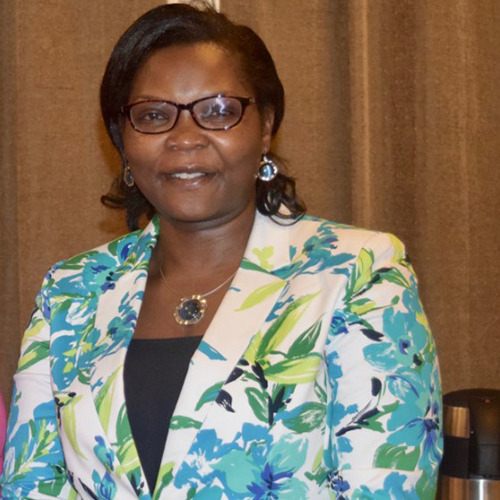 Annettee Nakimuli,
Annettee Nakimuli, Uganda
Maternal Newborn Child Health (MNCH)
Project- Using new genomic approaches to investigate causes of maternal sepsis among women delivering in sub-Saharan Africa
Nakimuli is using new genomic approaches to identify pathogens that cause fever (sepsis) among pregnant women. Sepsis is one of the major causes of maternal and neonatal morbidity and mortality globally, responsible for over 15% of maternal and neonatal deaths. In order to prevent deaths due to sepsis there is need to have a clear causal diagnosis and effective therapeutic interventions, but this is frequently absent especially in low and middle income countries. This is a comparative cross-sectional study of women who with fever at the time of delivery versus those without fever, who present at Kawempe National Referral Hospital. At enrolment in the study, sociodemographic information, clinical data and appropriate samples (blood, swabs, placenta and urine) will be collected for microbiological characterization including routine laboratory tests and deep genomic analyses (q-PCR and single cell RNA-sequencing) to capture which pathogens are present. This work will be done in collaboration with other scientists in Uganda and others at the Wellcome Sanger Institute in the United Kingdom. This study is expected to provide a detailed analysis of the causes of fever at delivery and lead to new diagnostic and therapeutic approaches.
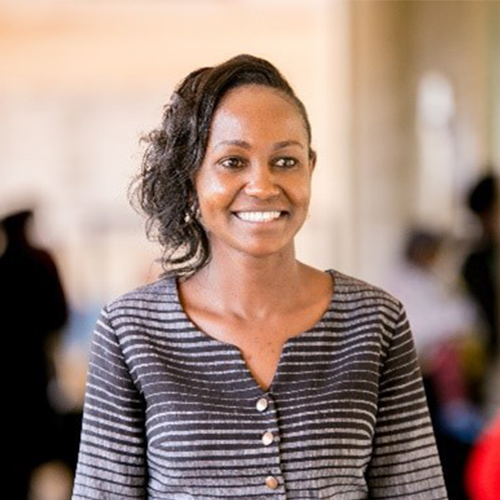 Christine Musyimi
Christine Musyimi Kenya
Maternal Newborn Child Health (MNCH)
Project – Mobile phone anger management support for perpetrators of Intimate Partner Violence during pregnancy (MAP- IPV)
Christine will develop a culturally appropriate intervention for anger management to reduce Intimate Partner Violence (IPV) among pregnant women in Kenya. This intervention will then be uploaded on a mobile phone through an existing app (MovisensXS), for use by Potential IPV Perpetrators (PIP) to reinforce anger management strategies that have been learned during a face-to-face training. Christine’s project aims at reducing Intimate Partner Violence (IPV) among pregnant women through anger management strategies, delivered via mobile phones to potential IPV perpetrators (PIP) in rural Kenya, where resources of mental health specialists are limited.
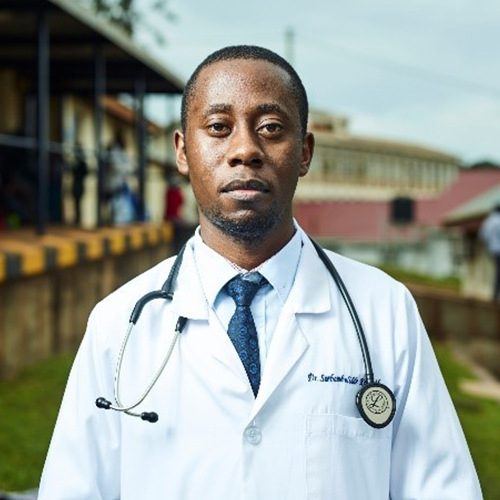 Kenneth Ssebambulidde
Kenneth Ssebambulidde Uganda
Maternal Newborn Child Health (MNCH)
Project: Relationship between maternal or new-born cholesterol levels and neonatal septicaemia: A Ugandan cohort of mother-new-born pairs
Prior in vitro work showed that immune cells in settings of high or low cholesterol have impaired uptake of bacteria.
Kenneth will lead a mother-newborn pair cohort study, looking for a correlation between maternal and new-born cholesterol levels and neonatal septicaemia. Consenting pregnant mothers will have a blood drawn for a lipid profile, and upon delivery, cord blood cholesterol will be analysed for their new-borns. The new-borns will be followed up for 28 days, those who develop clinical signs and symptoms of neonatal septicaemia will have a CBC, CRP, and blood culture to confirm diagnosis. We shall look for an association between maternal and new-born cholesterol levels at delivery with neonatal septicaemia. The projects seeks to test the hypothesis of whether abnormal (high or low) maternal and newborn cholesterol is associated with a risk for neonatal sepsis.
 Ali Sie
Ali Sie Burkina Faso
Maternal Newborn Child Health (MNCH)
Project: Towards an African platform for congenital abnormalities and birth defects
The 2015-2016 ZIKV epidemic in Latin America revealed ZIKV associated congenital malformations, including severe microcephaly. There is little or no surveillance for microcephaly or congenital anomalies in sub-Saharan Africa. It remains unknown, whether a similar epidemic could occur in Africa, the cradle of Zika virus. This pilot study aims to demonstrate the feasibility of generating (baseline) data on the frequency of congenital anomalies in rural Africa, including on the variability of head circumference measurements, and for the development of first-line laboratory testing for infectious agents related to congenital anomalies. We believe that, the potential of this study goes way beyond Zika and infectious diseases and will help to establish knowledge that currently does not exist in sub-Saharan Africa.
 Carol Hlela
Carol Hlela South Africa
Maternal Newborn Child Health (MNCH)
Project- Advanced, wireless biosensors with built-in clinical decision support for critical care monitoring in hospitalized newborns.
In monitoring of sick newborns, vital signs monitoring equipment is essential. The traditional wired monitors require strong adhesives that frequently cause iatrogenic skin injuries and impede Kangaroo care, and the information displayed requires high levels of training to interpret correctly. ANNETM is a novel wireless vital sign monitoring system, designed explicitly for neonates, that leverages two software-linked patches that are soft and wearable. These are placed on the child’s chest and hand/foot to monitor a wide range of vital signals (heart rate, respiratory rate, temperature and pulse oximetry, body position, and cuff-less continuous blood pressure), on a wide range of mobile devices. With the use of ANNETM , the study aims to simplify the current system and achieve better hospital care of sick newborns in low resource settings.
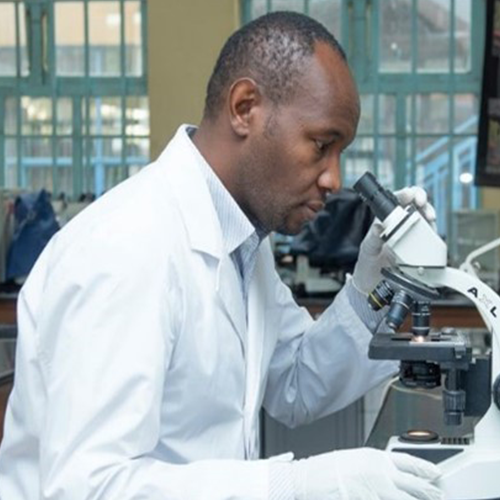 Jesse Gitaka
Jesse Gitaka Kenya
Maternal Newborn Child Health (MNCH)
Project summary: Point-of-need molecular diagnostics for maternal health with fibre mats
Curable sexually transmitted infections (CuSTIs) impact negatively on pregnancies and current access to diagnostics is poor in rural health facilities due to the need for complex instruments and skills.
Gitaka’s project employs a strategy that will transfer cutting edge gene editing tools employing isothermal temperature profiles mounted on fibre mats will enable highly reliable diagnosis of CuSTIs in Low Resource Settings.) enabling on-site pathogen analysis settings aiding prompt treatment alleviating prematurity, stillbirths and neonatal deaths.
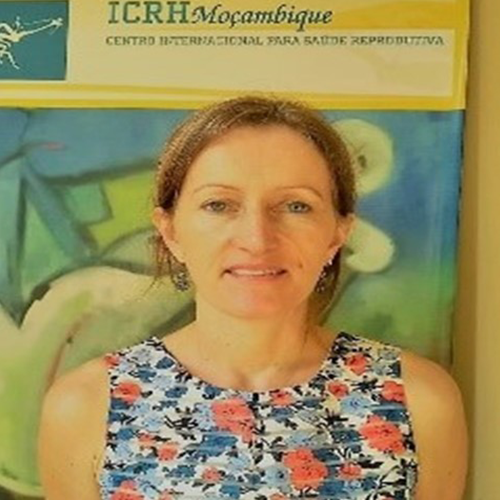 Sally Griffin
Sally Griffin Mozambique
Maternal Newborn Child Health (MNCH)
Testing an intervention to strengthen male involvement in maternal healthcare
ICRH-Mozambique aims to increase the involvement of men in maternal health, by testing a gender- and culture-sensitive intervention that has been developed based on prior formative research. Male involvement in maternal healthcare has been shown to be important for improving maternal and newborn outcomes, however current interventions in Mozambique have had limited success in engaging men and can reinforce gender inequality. The project intervention consists of introducing couple antenatal care (ANC) consultations during pregnancy, together with community mobilization activities using a film produced with local communities. By training providers and implementing couple consultations at a separate time from regular ANC consultations, we expect to remove existing barriers for male involvement, and improve maternal and neonatal outcomes. The project will take place in Marracuene district in southern Mozambique, in collaboration with the Maputo Provincial Health Department, the University of Ghent in Belgium and Aguacheiro.